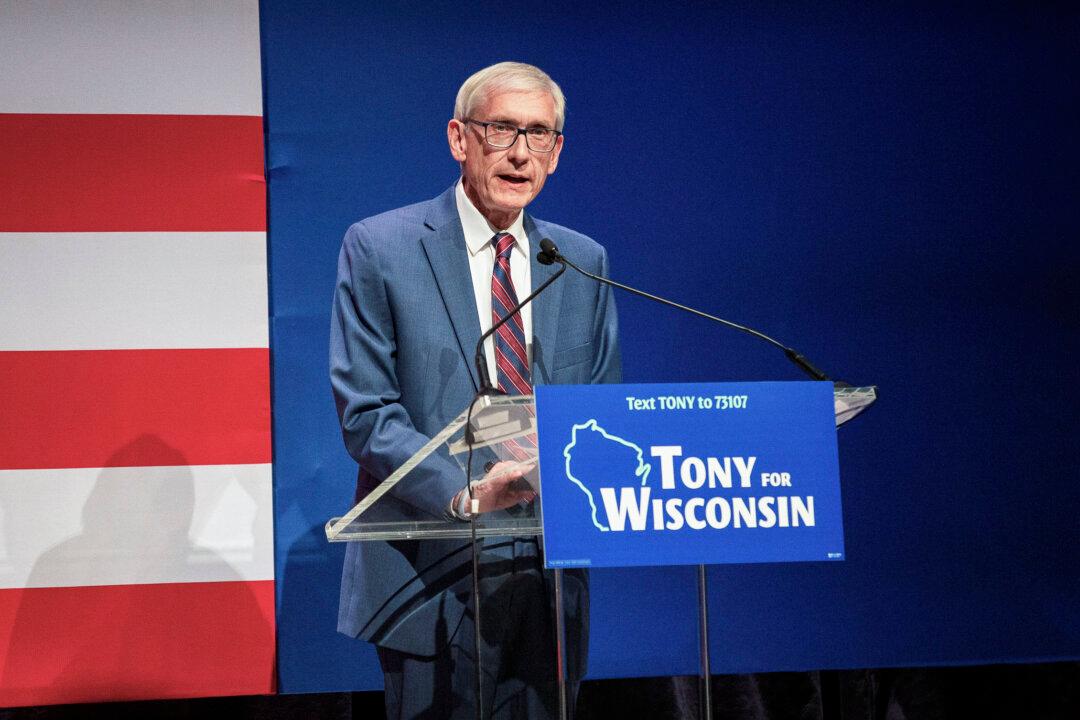Wisconsin’s Gov. Tony Evers, a Democrat, has asked the state’s Supreme Court to overturn its 2022 ruling limiting the use of drop boxes to receive absentee ballots in elections.
In a brief filed with the court on April 2—the day of Wisconsin’s presidential primary—Mr. Evers argued the 2022 decision by the state Supreme Court “imposed one-size-fits-all, judicially created constraints on these municipal clerks’ authority to administer elections in a manner that is both responsive to the needs of their unique communities and compliant with the law.”




